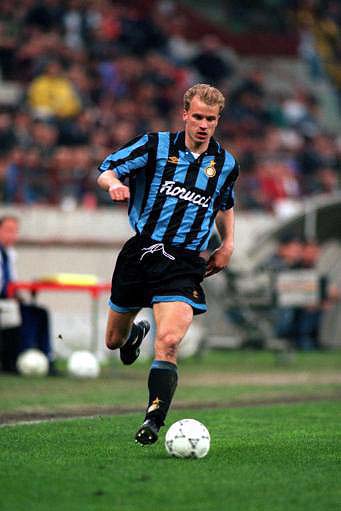‘’He took free kicks like no other.’’ Andrea Pirlo remarked.
‘’I just used to stand there in training and study him for days. I think I
learned something in the end.’’
Pirlo was of course talking about Roberto Baggio, one of the
bearded geniuses' idols. It can be easy to overlook just how good The Divine
Ponytail was at set pieces, given how brilliant he was at more or less everything
else on a football pitch.
He's among the best free kick specialists in Serie A
history, in the top five surrounded by illustrious names (Zola, Del Piero, Pirlo and Mihajlovic
are the other four) - and he inspired two out of the four to boot. That speaks volumes.
I’ve given myself the arduous task of trying to whittle down
Baggio’s top five free kicks from all competitions. As someone who has most of his
goals imprinted to memory as an ardent lover of the man from Caldogno,
there were some goals I’d somehow forgotten about and it was a joy just to sit
back on YouTube and marvel at his genius (as if anyone needs an excuse
anyways).
The difficult part was deciding which ones to leave out, so
I took into consideration things like importance of the goal, who the opponents
were and significance of the game.
So enough waffling from me and lets all marvel together at the ponytailed genius. If you felt there were certain goals I left
off the list I would like to hear suggestions.

